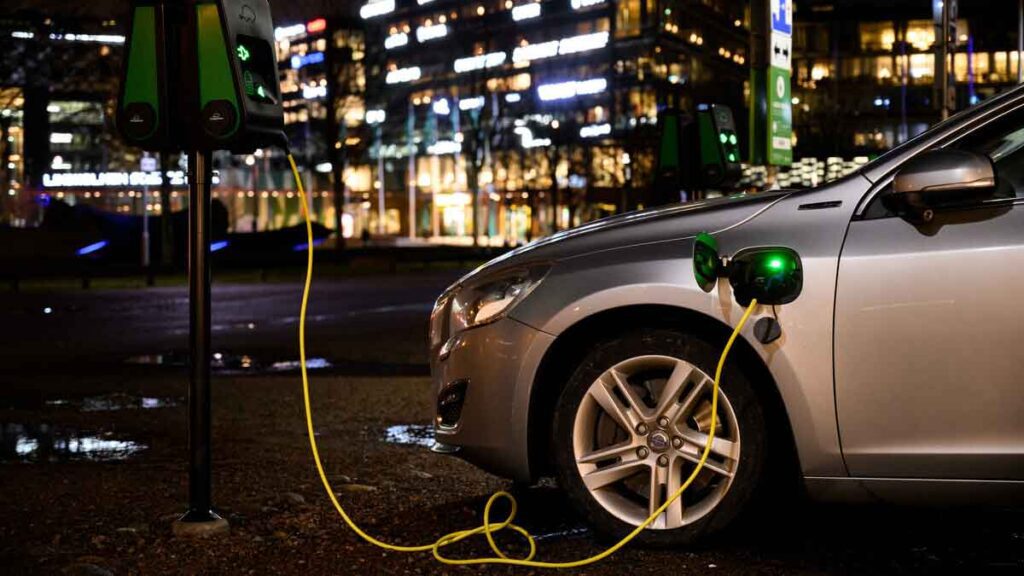
Swedish automaker Volvo announced on Tuesday plans to become a fully electric car company by 2030, a company statement reported.
According to Volvo, the automaker intends to only sell fully electric cars and phase out any car in its global portfolio with an internal combustion engine, including hybrids. The company’s transition towards becoming a fully electric car maker is part of its ambitious climate plan, which seeks to consistently reduce the life cycle carbon footprint per car through concrete action.
“To remain successful, we need profitable growth. So instead of investing in a shrinking business, we choose to invest in the future – electric and online,” said Håkan Samuelsson, chief executive. “We are fully focused on becoming a leader in the fast-growing premium electric segment.”
This move comes at a time where the electric vehicle charging station market witnesses a massive hike, with MarketsandMarkets reporting that by Level of Charging (Level 1, Level 2 & Level 3, by Charging Infrastructure (Normal Charge, Type-2, CCS, CHAdeMO and Tesla Supercharger), and DC fast charging, including fast and ultra-fast – is projected to grow from 2,115,000 units in 2020 to reach 30,758,000 units by 2027, at a CAGR of 46.6 percent.
“Factors such as growing demand for energy-efficient commuting and governments supporting electric vehicles through subsidies & tax rebates have led to automakers adopting to electric vehicles and growth of electric vehicle charging stations market,” the report said.
Adding, “Growing concerns over increased pollution by the automotive industry is the prime reason government bodies are promoting electric vehicles over conventional ones. They have recognized the need for promoting energy-efficient vehicles to reduce the increasing pollution.”
Volvo’s decision also builds on the expectation that legislation as well as a rapid expansion of accessible high quality charging infrastructure will accelerate consumer acceptance of fully electric cars.
To attract and encourage people to buy electric vehicles and electric vehicle charging stations, government bodies of various countries are introducing incentives that include large-scale discounts, lower electricity cost for charging, lower set-up cost of EV chargers, and subsidies for setting up EV chargers which, in some countries, may go up to one-third of setup cost.
Volvo Cars’ move towards full electrification comes together with an increased focus on online sales and a more complete, attractive, and transparent consumer offers under the name Care by Volvo. All fully electric models will be available online only.
According to the Swedish automaker, the 2030 ambition represents an acceleration of Volvo Cars’ electrification strategy, driven by strong demand for its electrified cars in recent years and a firm conviction that the market for combustion engine cars is a shrinking one.
“There is no long-term future for cars with an internal combustion engine,” said Henrik Green, chief technology officer. “We are firmly committed to becoming an electric-only car maker and the transition should happen by 2030. It will allow us to meet the expectations of our customers and be a part of the solution when it comes to fighting climate change.”
Volvo Cars launched its first fully electric car, the XC40 Recharge, in markets around the globe last year. Later today the company will reveal its second fully electric car, a new model in the 40 Series.
In coming years Volvo Cars will roll out several additional electric models, with more to follow. Already by 2025, it aims for 50 percent of its global sales to consist of fully electric cars, with the rest hybrids. By 2030, every car it sells should be fully electric.
According to the company statement, Volvo Car Group recorded an operating profit of $1 billion, a drop from its $1.69 billion in 2019. In parallel, revenue over the period amounted to $31.17 billion in 2020, a decline from the previous year’s $32.52 billion.
For the full year of 2020, global sales reached 661,713 cars (705,452 in 2019), a decline of 6.2 percent.
Inside Telecom provides you with an extensive list of content covering all aspects of the tech industry. Keep an eye on our Community section to stay informed and up-to-date with our daily articles.